Summary
- UK inflation hit 3.5% in April, according to this morning's report from the Office for National Statistics (ONS). This is the highest level in over a year.
- The Bank of England had been forecasting a 3.4% reading.
- “Awful April” is largely to blame, with a range of bills going up in April each year, including energy bills, water bills and council tax.
- The inflation report comes less than two weeks after the Bank of England announced its latest interest rate cut, bringing the base rate to 4.25%.
- Since then, the Bank’s chief economist Huw Pill has warned that interest rate cuts have been coming “a little too fast” given developments with inflation.
- Pill voted against the recent cut but was outnumbered by other committee members.
| What is inflation? | CPI versus RPI inflation | Upcoming CPI release dates |
April’s inflation figures due tomorrow
Good afternoon and welcome to our live blog. April’s inflation data will be published tomorrow morning at 7.00am. Brace yourself for a significant jump. The Bank of England thinks the headline rate will rise to 3.4%, up from 2.6% last month.
This would be the fastest rate of annual CPI inflation in over a year. The last time the inflation rate was this high was in February 2024. The good news is that it is expected to be short-lived.
In its latest monetary policy summary, the Bank of England said that “previous increases in energy prices” were “likely to drive up CPI inflation from April onwards”, but that it was “expected to fall back thereafter”.
By this time next year (Q2 2026), the Bank expects inflation to have fallen back to around 2.4%. By the second quarter of 2027, it expects it to be 1.9%. This is below the all-important 2% target.
“Biggest test for the MPC so far this year”
“After an encouraging March report, the April inflation reading will present the biggest test for the MPC so far this year,” said Sanjay Raja, chief UK economist at Deutsche Bank. April’s bill hikes are likely to have pushed the overall inflation rate higher, as well as a later-than-usual Easter weekend. The biggest test will come from elsewhere, though.
The Bank will be watching to see “how the double whammy of the National Living Wage and employer National Insurance Contributions impact price momentum”, Raja said. “We think food, core goods and some services (particularly hospitality and leisure) will be most impacted.”
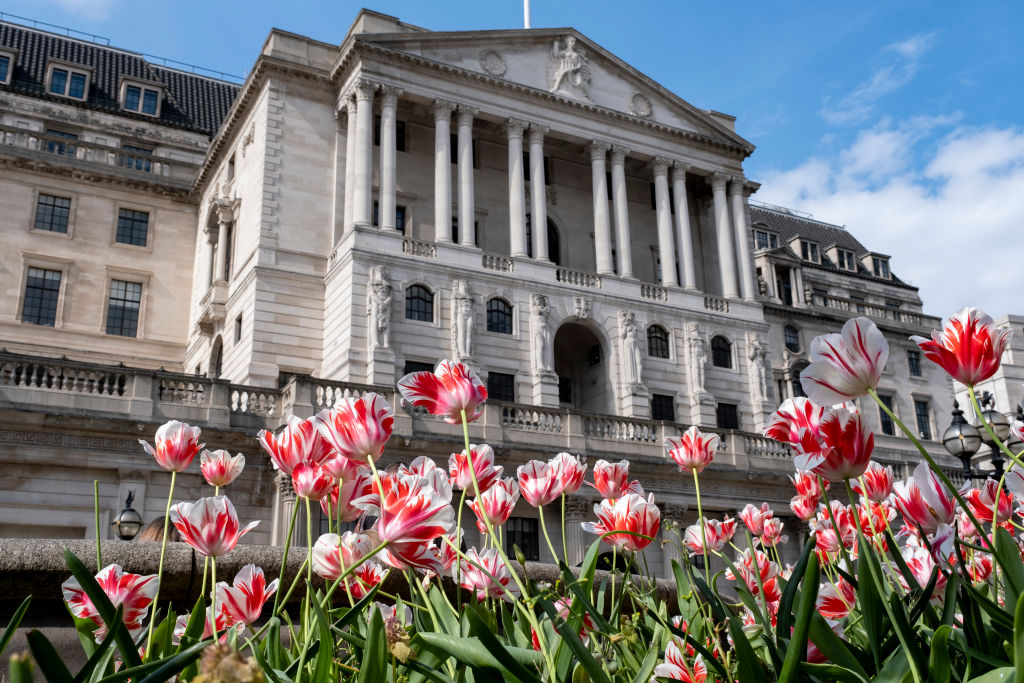
The MPC met earlier this month and voted to cut interest rates by 25 basis points on 8 May. A consecutive cut at next month’s meeting in June currently looks unlikely.
What about core and services inflation?
The headline rate of CPI inflation is the most commonly-reported metric, but the Bank of England also keeps a close eye on core and services inflation.
- Core CPI excludes volatile measures such as energy, food, alcohol and tobacco. It can give a better sense of how embedded inflation is in the economy.
- Services inflation tells you how much things like educational costs, hospitality costs, and recreational costs have gone up or down. Around 80% of the UK economy is made up of services.
Deutsche Bank thinks core CPI will jump to 3.7%, up from 3.4% last month. It thinks services CPI will rise to 4.9%, up from 4.7%.
ING: “April is always a crazy month for UK inflation”
The economists at financial institution ING think the Bank of England can relax.
UK economist James Smith points out that “April is always a crazy month for UK inflation” because of the annual bill hikes that take place. When you put this to one side, pricing power more generally “seems to be fading”.
“We think the news on services inflation is about to get better. We believe it will be half a percentage point lower by June (roughly 4.2%), well below the BoE’s forecasts, which see it hovering around 5% into the summer,” he added.
This drop will be partly linked to slower rental growth, in ING’s view.
ING also points out that services inflation looks much better when you strip out volatile categories like airfares, holidays and rents. This underlying measure, which ING terms “core services inflation”, is “already tracking at 4% and is likely to head lower over the next few months”, Smith said.
As we established in a previous post, services inflation is an important metric for the Bank of England, because services make up around 80% of the UK economy.
Against this backdrop, ING thinks the Bank could end up cutting rates to a lower level than the market currently anticipates. “Markets are pricing the terminal rate at 3.7%,” Smith said. “We're expecting rates to eventually fall to 3.25%.”
Huw Pill on “the courage not to act”
The Bank of England’s chief economist Huw Pill sounded a more cautious tone in a speech delivered before Barclays today.
He expressed the view that rate cuts have been coming “a little too fast of late”, and defended his “hold” vote earlier this month by talking about “the courage not to act”.
Pill still believes the disinflationary process is intact, but favours a more gradual pace of cuts.
“I am concerned about the potential inflationary impact of structural changes in price and wage-setting behaviour, following the experience of prolonged, well above-target inflation in recent years,” he said.
This could potentially include workers continuing to demand higher pay, or companies continuing to hike prices for longer.
Against this backdrop, Pill believes the quarterly pace of rate cuts we have seen since last summer is too rapid.

What could April’s tax changes mean for inflation?
One thing economists will be watching over the coming months is the impact of recent tax changes on the inflation data.
Chancellor Rachel Reeves raised the rate of employer National Insurance contributions in her Autumn Budget last year. She also lowered the threshold at which employers begin paying the tax. These changes came into effect at the start of the new tax year in April.
A survey of 52 leading retailers, conducted by the British Retail Consortium (BRC) earlier this year, showed two-thirds of businesses were considering raising prices to help offset the cost of the changes.
“Retailers have worked hard to shield their customers from higher costs, but with slow market growth and margins already stretched thin, it is inevitable that consumers will bear some of the burden. The majority of retailers have little choice but to raise prices in response to these increased costs,” said Helen Dickinson, BRC chief executive.
How does inflation affect your cash savings?
With tomorrow’s inflation figures expected to be the highest that the UK has seen in over a year, now is a good time to assess whether your cash savings are doing enough.
Inflation eats away at the purchasing power of your money – as prices rise, your money will not stretch as far as it did before. That’s why it is important to make sure it is growing in one of the best savings accounts.
While you may think this won’t affect you, it is still worth checking.
Recent research from Paragon Bank revealed that 55% of the UK population has money languishing in low-interest savings accounts, with billions of pounds being eroded by inflation.
For example, if inflation was at the Bank of England’s target of 2% and your money was held in a current account accumulating no interest, then your cash would be 2% less powerful.
However, if you instead put that money into a savings account that yielded 2% interest, your money would keep pace with inflation, keeping your purchasing power the same.
Don’t be content with just matching inflation. After a period of high interest rates, many savings accounts offer inflation-busting rates.
The best cash ISA on the market right now, Moneybox’s cash ISA, can grow your savings by 5.71%. When you subtract last month’s inflation reading of 2.6% from this figure, you are left with a real return of 3.11%.
– Daniel Hilton, junior writer

That concludes our preview analysis for today, but we will be back tomorrow morning before the inflation news breaks at 7.00am. Join us then.
Welcome back – less than half an hour to go
Good morning and welcome back to our inflation live blog. There is less than half an hour to go until April’s inflation figures are released. To recap, a big jump is expected following the slew of bill hikes throughout the month.
Stick with us as we bring you all the details, plus what it means for your personal finances.
Recap: which bills went up in April?
April is the main month of the year when household bills go up, and this is expected to contribute to the significant rise in the rate of inflation in this morning’s report. Some of the main price hikes this April included:
- Energy: The typical energy bill rose by £111 per year this April.
- Water: The typical water bill rose by £123 per year.
- Council tax: Council tax bills rose by almost 5% across most local authorities in England, with some councils getting special permission to hike costs by up to 9.99%.
Other services like broadband and mobile phone contracts can see price hikes in April. Depending on when you took your contract out, these can be linked to a previous rate of inflation. Car tax is another example of a cost that went up during the month.
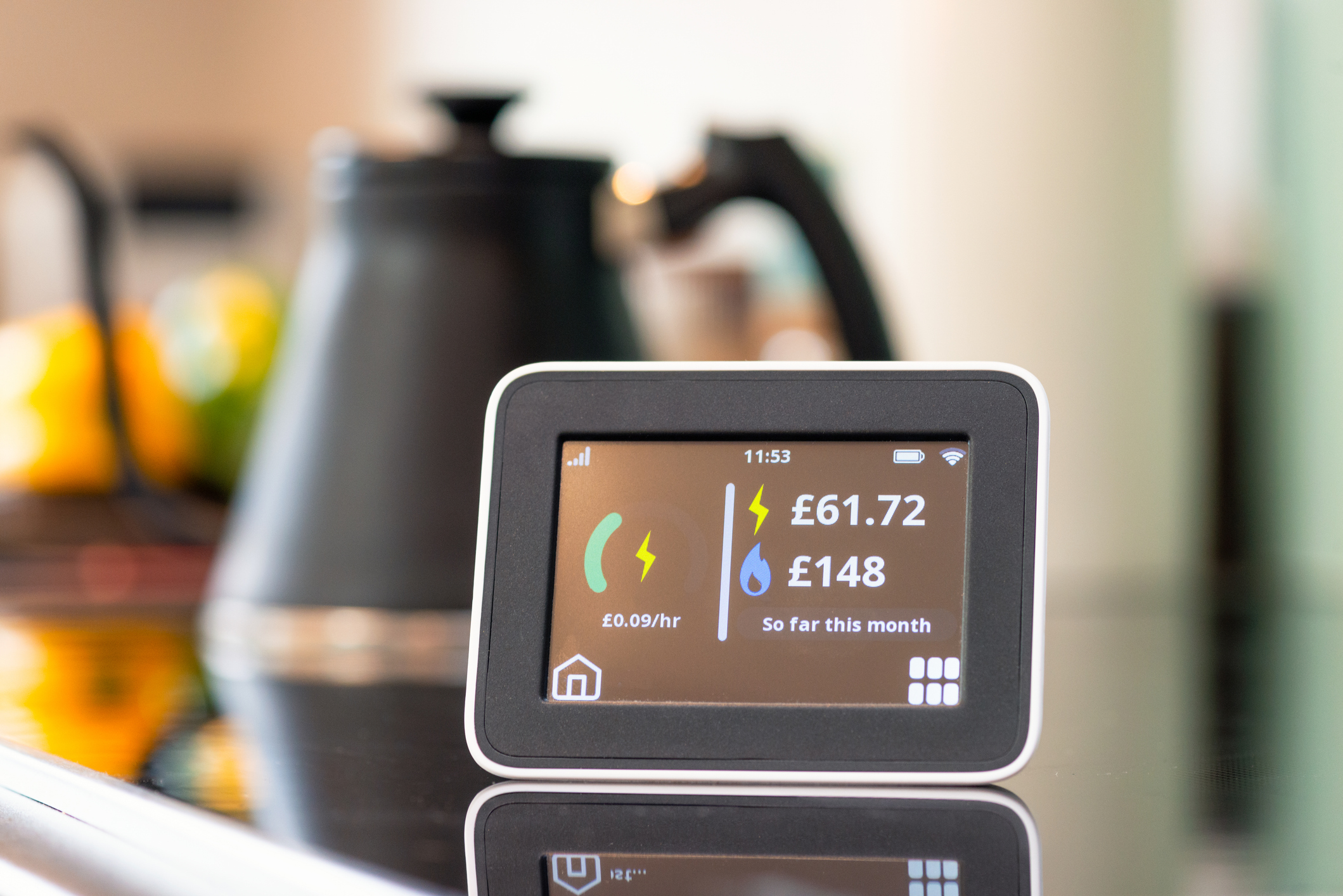
BREAKING: Inflation jumps to 3.5%
Inflation jumped by more than expected, hitting 3.5% in April, up from 2.6% the month before.
Inflation higher than the BoE anticipated
The latest reading is the highest since January 2024. It is also slightly higher than the 3.4% the Bank of England had anticipated. A June interest rate cut was already looking unlikely. This makes it even more so.
Significant jumps in core and services inflation
Core and services inflation also saw big jumps in this morning's report. Core inflation rose from 3.4% to 3.8%, while services inflation rose from 4.7% to 5.4%.
For context, the economists at Deutsche Bank were predicting 3.7% (core) and 4.9% (services), so both forecasts fell short.
These jumps are likely to encourage caution from the Bank of England when it meets again next month to set interest rates.
Housing and household services – the biggest contributor
Unsurprisingly, housing and household services were the biggest contributors to April's inflation jump. The 12-month inflation rate for the sector was 7% in April, up from 5.1% the month before.
Hikes to gas and electricity bills were a key driver, after the Ofgem energy price cap rose by 6.4% at the start of the month.
For the average household paying by direct debt for gas and electricity, this pushed the typical bill up by £111 per year to £1,849.
Water bills added to soaring costs
Water bill hikes were another contributor to April's inflation rise, also captured within the "housing and household services" segment.
"Prices of water and sewerage rose by 26.1% in the month to April 2025 compared with a rise of 8.1% a year ago. This is the largest rise since at least February 1988," the ONS said.

Transport costs pushed higher by car tax and a late Easter
After housing and household services, the transport sector was the biggest contributor to April's inflation jump.
Car tax changes were partly to blame, after some of the rates paid by new petrol and diesel cars doubled in April. Electric vehicles also became eligible for the tax this April.
A late Easter was another factor, resulting in higher airfares being captured in the dataset this month. Airfares rose by 27.5% on a monthly basis, up from 6.5% in the same month a year ago. This is the second-highest monthly rise for April since records began.
"Flights departing in the Easter holidays tend to be more expensive than flights not departing in the Easter holidays," the ONS explains.
"Index day occurred during the Easter holidays in 2025, which made every flight more expensive. However, in 2024 index day occurred after the Easter holidays."
Did the National Insurance hike make a difference?
As we outlined in our preview analysis yesterday, some analysts thought recent changes to employment costs could contribute to a higher rate of inflation this month.
Chancellor Rachel Reeves hiked employers' National Insurance contributions in her Autumn Budget last year, with the changes kicking in this April. Higher minimum wage levels also came into effect.
Some businesses indicated that they were looking to raise their prices in response, to help offset the higher costs now associated with employing workers.
Suren Thiru, economics director at the Institute of Chartered Accountants in England and Wales, thinks we could be starting to see evidence of this already.
He said: "Rising services and core inflation suggest that the double blow for businesses from the rising National Insurance and National Living Wage has further fuelled underlying price pressures, more than offsetting the downward squeeze from a wilting labour market."
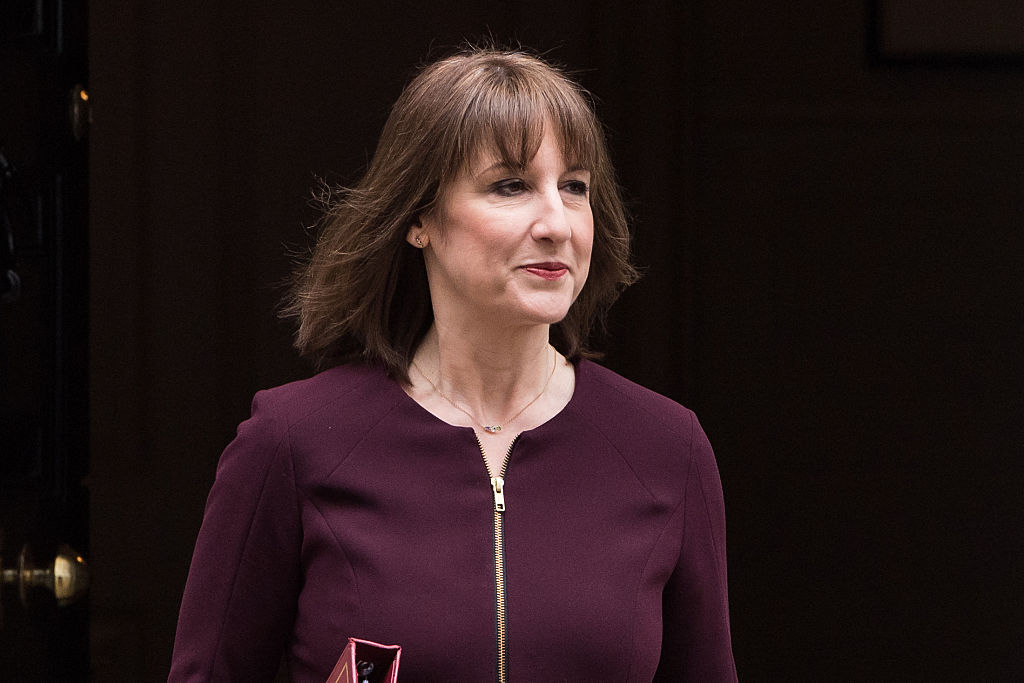
What does the inflation jump mean for your personal finances?
An inflation jump will come as bad news to households up and down the country, but the good news is that you have probably already absorbed the worst of the price increases. Higher bills will have shown up in your account for the first time last month.
The Bank of England doesn't expect this resurgence in inflation to last for long, and it thinks it will peak in the third quarter of this year at around current levels (3.5%).
What's more, there is no suggestion that we are heading back to the darkest days of the cost-of-living crisis, when the annual rate of price increases peaked at 11.1%.
That said, it is also worth pointing out that a slowdown in inflation after this point (Q3 this year) doesn't mean prices are expected to fall overall. They are just expected to rise at a slower rate, closer to the Bank of England's target of 2%.
Unless your wages have kept pace with inflation, this means your purchasing power will have been eroded.
"Personal budgets may come under pressure once again"
"Anyone fortunate enough to have received a pay rise in recent months may have seen a large chunk of that pay increase swallowed up the sharp hikes in household bills and tax – a result of frozen income tax thresholds, which are set to stay firmly in place until at least 2028," said Alice Haine, personal finance analyst at investment platform Bestinvest.
There should be some good news on the horizon when it comes to energy bills, though. As Haine points out, these are one area where price drops are expected over the summer. After rising by 6.4% in April, the Ofgem energy price cap is expected to drop by 7% in July, according to the latest forecasts from consultancy Cornwall Insight.
Haine says it probably won't be enough to move the needle for those suffering the most, though.
"For those still struggling with everyday bills, reviewing budgets to ensure expenditure comes in lower than household income is the simplest strategy, though that can be hard to achieve in reality," she said.
"Putting big-ticket purchases on pause, carrying out an audit of subscriptions and direct debits to cut any wasteful expenditure, and shifting expensive debts onto a 0% balance transfer card are some strategies consumers can employ to keep budgets on track as prices tick up."
Bad news for mortgage rates
Today's larger-than-expected jump in inflation could come as bad news to those looking to take out a mortgage or refinance their debt at the end of a fixed-rate period.
While an inflation jump was widely anticipated – and priced in by markets – the headline figure came in slightly above the 3.4% forecast by the Bank of England.
Core and services inflation were higher than many analysts had predicted too. This could keep the Bank of England cautious, with the base rate potentially staying higher for longer.
Swap rates, which underpin mortgage pricing, often rise when inflation surprises to the upside to reflect this dynamic.
The average two-year fixed mortgage rate is currently 5.11%, according to Moneyfacts. The average five-year deal is 5.07%. Borrowers can usually secure a better rate by shopping around.

"Stagflation is a central banker’s living nightmare"
While a jump in inflation was widely anticipated in today's report, the headline figure was higher than the Bank of England had predicted.
"Even more worrying is the jump in services prices," said George Lagarias, chief economist at financial services company Forvis Mazars.
He calls stagflation a "central banker's living nightmare", and adds that the MPC will now need to choose "whether to support growth or fight inflation by further risking the growth outlook".
The UK economy proved surprisingly resilient in the first quarter of 2025, growing by 0.7%, however many fear that a slowdown is coming, partly driven by the global economic fallout from Trump's tariffs.
Savers facing a double hit of falling rates and rising inflation
The latest inflation reading of 3.5% means fewer savings accounts will now be offering a real return. Check your rate to ensure you are matching inflation, at the very least.
A comparison tool can help you work out whether switching could earn you a better deal.
"Those in low-paying accounts should consider looking beyond mainstream banks," said Sally Conway, savings expert at Shawbrook Bank.
"Specialist providers often offer better returns – and switching could deliver a meaningful boost to your interest income. With rates expected to fall further this year, fixing savings for a year or more could help lock in better value for longer."
See our round-up of the best easy-access rates, one-year savings accounts, regular saver accounts and cash ISAs for the latest deals on cash savings.
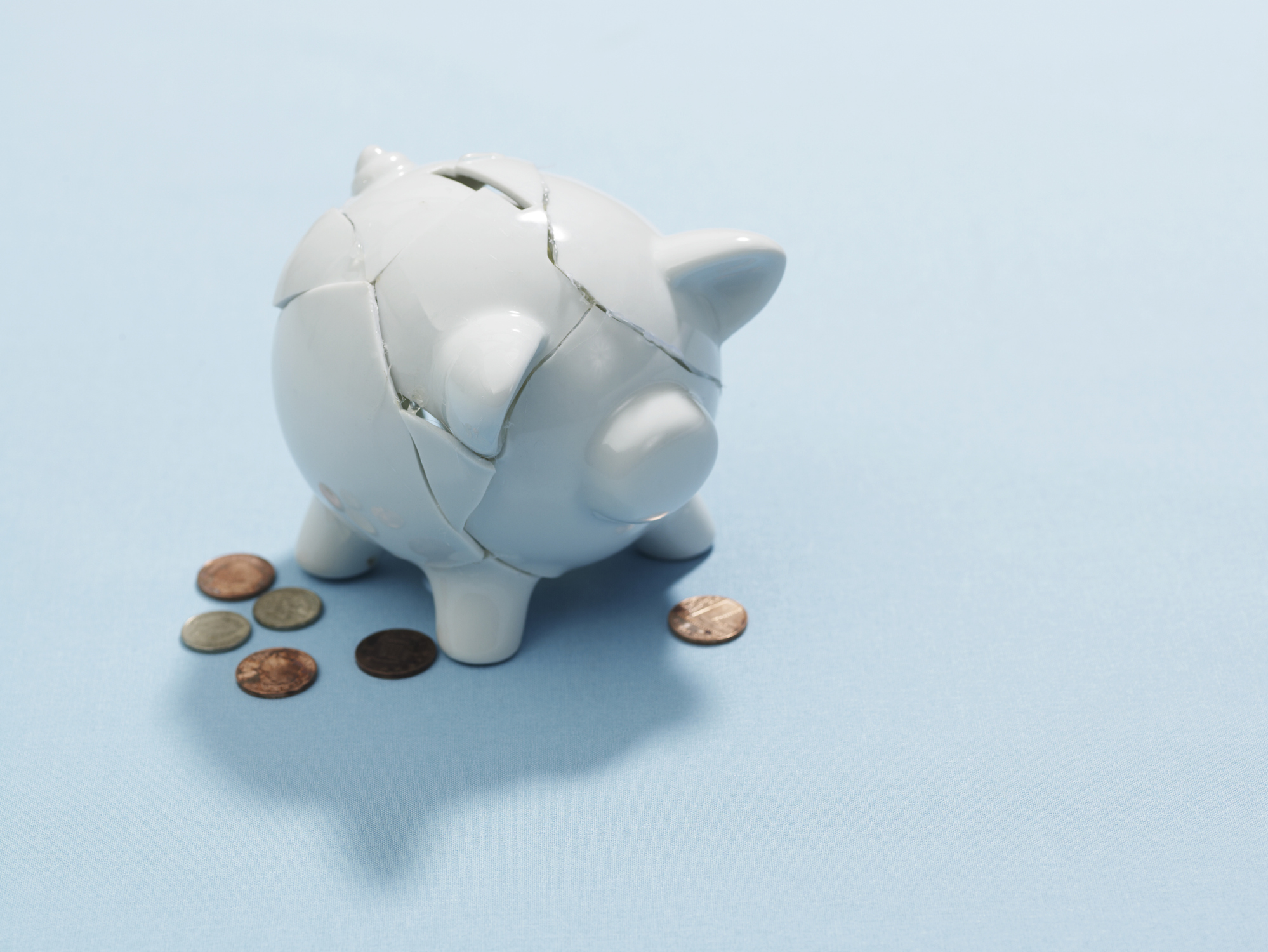
House prices rise by 6.4% annually
It's not just the Consumer Prices Index that is published today, but also the latest house price inflation data from HM Land Registry.
The figures, published a few minutes ago at 10am, cover the year to March, as Land Registry data comes with a two-month time lag.
House prices rose by 6.4% on an annual basis in March, and 1.1% on a monthly basis, as buyers rushed to complete a purchase before stamp duty changes kicked in at the start of April.
This is a significant rise compared to the previous report, where the annual figure came in at 5.4%, and the monthly figure at 0%.
March's increase takes the average UK house price to £271,000.
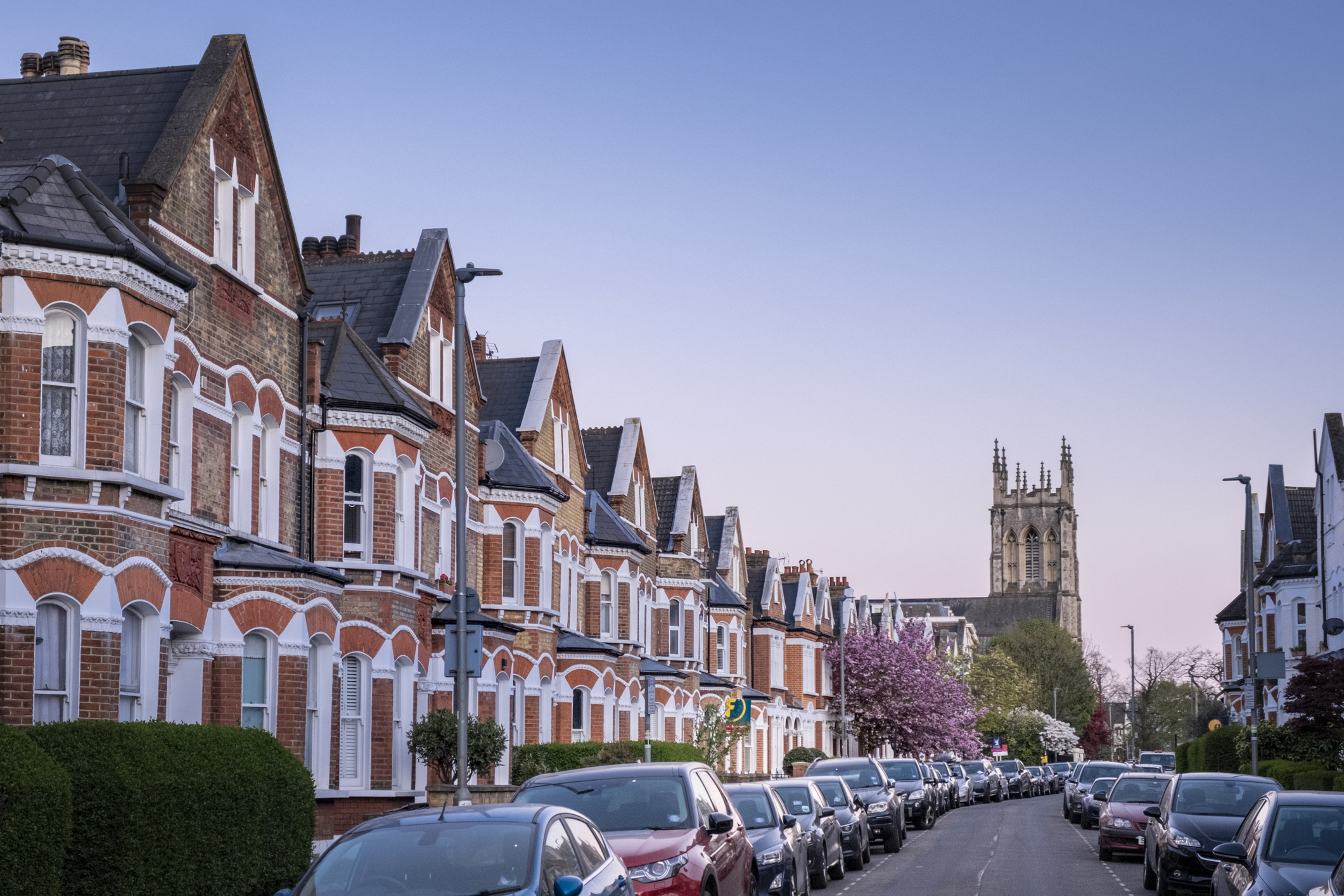
How have investment markets reacted to the latest inflation data?
Returning now to the CPI report, how have investment markets responded?
Higher-than-expected inflation is usually bad news for investors. As well as eroding the real value of their returns, it pushes up costs for businesses and squeezes their margins.
If inflation proves more persistent than expected, interest rates could stay higher for longer too. This also creates challenges for businesses by making it more expensive for them to borrow money. Companies may struggle to invest in future ventures during periods like this.
High inflation and borrowing costs are usually bad news for consumers as well – and a weak consumer is no good to businesses, who want you to spend money.
Commenting on this morning's inflation print, Susannah Streeter, head of money and markets at Hargreaves Lansdown said: "The FTSE 100 has struggled to cling onto gains as investors get to grips with hotter-than expected UK inflation figures and rising geopolitical risks.
"Sterling has risen amid expectations that the hotter inflation number will make policymakers that bit more inclined to keep interest rates higher for longer.
"Financial markets have reduced expectations for rate cuts this year, with only one reduction looking bolted on. As the pound flexes more muscle it adversely affects the value of multinationals overseas earnings, which is putting pressure on the FTSE 100."
The importance of emergency savings
Costs are rising more quickly and the economy is showing signs of weakening, including lower wage growth and higher unemployment figures. There have also been mutterings of layoffs as businesses adjust to higher employment costs.
Against this backdrop, some households might be feeling nervous – but there are steps you can take.
"Building a reliable cash pot to fall back onto is crucial, especially with persistent sticky inflation eating its way into savers’ deposits," said Caitlyn Eastell, spokesperson at Moneyfacts.
"Research conducted by the Financial Conduct Authority (FCA) has revealed that one in 10 people have no cash savings and another 21% have less than £1,000. Ongoing cost-of-living pressures mean consumers need to shake any apathy aside and start building a healthy habit that provides attractive returns to avoid receiving a raw deal," she added.
This is easier said than done, but setting up a direct debit to save even £50 or £100 a month is a good start.
See our guide on how much you should have in emergency savings based on your circumstances. Knowing how much you need can give you a target to work towards.
Have interest rate expectations shifted?
Today’s inflation reading was higher than expected. The headline figure of 3.5% was above the 3.4% forecast by the Bank of England, and marked a nasty increase from March’s reading of 2.6%.
Core inflation also jumped from 3.4% to 3.8%, while services inflation rose from 4.7% to 5.4%.
What does this mean for interest rate projections?
- Markets: Investors have adjusted their interest rate expectations to price in fewer cuts. Only one reduction now looks bolted on this year based on market pricing, according to data cited by Hargreaves Lansdown.
- Economists: Economists on the other hand are generally holding firm. Investment bank Peel Hunt still expects two more cuts before the end of the year. ING is also forecasting two, with cuts still coming at a quarterly pace. Deutsche Bank is also sticking to its forecast of three more cuts in 2025.
“Does the April surprise change our view that the BoE will cut the Bank Rate two more times this year – by 25bp each in August and November? Not much,” said Kallum Pickering, chief economist at Peel Hunt.
“Looking further ahead, the BoE (and we) expect underlying disinflation to continue – helped by growing slack in the labour market, recent declines in energy prices (which should contribute to a lower household energy price cap in July), a stronger currency (which lowers import prices), and the potential for the diversion of goods into Europe from China in the wake of US tariff measures to lower the prices of some imported goods.”
Pickering does think the latest news eliminates any chance of a rate cut in June, but the odds were already slim even before today’s report.
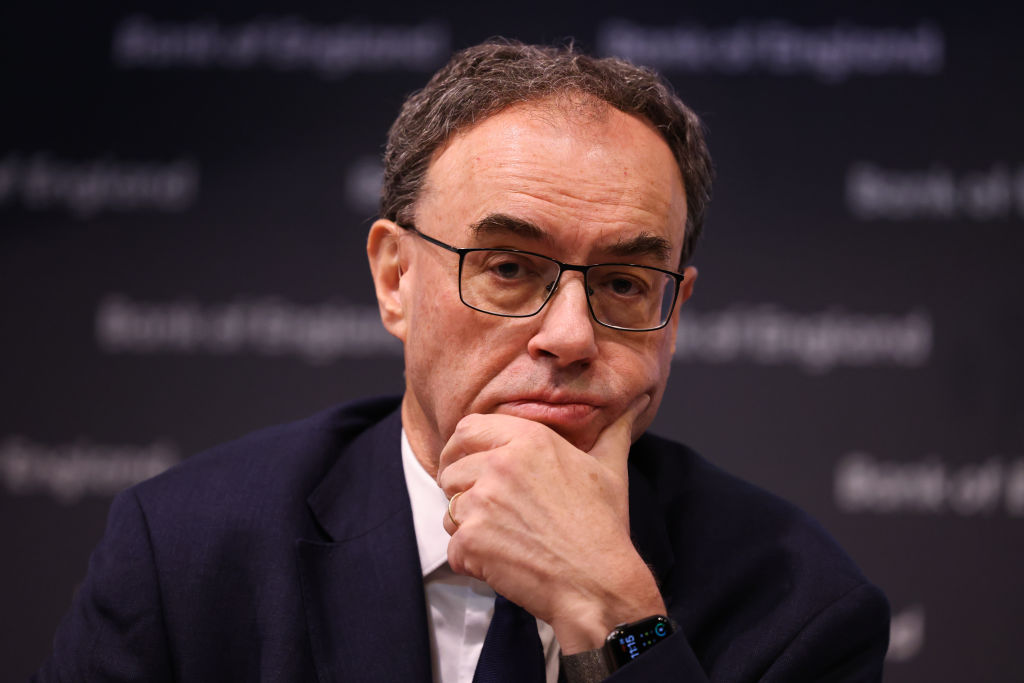
Above: Governor of the Bank of England, Andrew Bailey. Bailey and the rest of the MPC will analyse the latest inflation data closely when making future interest rate decisions. A cut at the upcoming meeting in June currently looks very unlikely.
Is inflation as bad as it looks?
Deutsche Bank argues that some elements of the CPI report can be taken with a pinch of salt. It points to the spike in airfares as one example. This was largely driven by a later-than-usual Easter.
The bank says that “a lot will reverse in May”, while one-off increases in things like car tax will “wash out of the CPI calculation eventually”. It also thinks the MPC can find solace in other areas of the report.
Housing costs and health services both undershot Deutsche Bank’s forecasts. Meanwhile, recreational and personal services were in line with expectations, and suggested “very little surprise in NICs, and likely less than what the Bank staff pencilled in”.
Deutsche Bank points out that catering prices “only” rose by 0.6% month-on-month, for example, while accommodation prices rose by just 0.34%.
Could the BoE ignore the increase in services inflation?
The scale of the increase in services inflation in April was unexpected, jumping from 4.7% to 5.4%. However, when you delve into the data, it isn’t as bad as it looks.
“We calculate that half of that change was solely down to the rise in road tax,” said James Smith, UK economist at ING.
“That will stick around for the next 12 months, then drop out of the annual comparison. The Bank of England will almost certainly ignore this, as it does with changes in other taxes like VAT.”
The remainder of the increase can “almost entirely” be accounted for by the surge in airfares and packaged holiday costs, Smith points out. This is largely the result of Easter coming later than usual this year.
As the ONS noted in its report, index day occurred during the Easter holidays this year, when things like flights are generally more expensive.
Given the nature of items like airfares and holidays, the Bank of England is generally less concerned about them anyway. As such, it could decide to look through the increase in services inflation when determining the path for monetary policy going forward.

Airfares were a key driver of the jump in services inflation, as Easter fell later than usual this year, meaning prices were collected during peak holiday time.
That concludes our inflation coverage for today. Thank you for joining us. We will be back again next month with more live reporting and analysis. In the meantime, here are some important economic dates for your diary.
- 10 June: Labour market report
- 12 June: GDP monthly estimate (covering April)
- 18 June: CPI report (covering May)
- 19 June: MPC meeting
